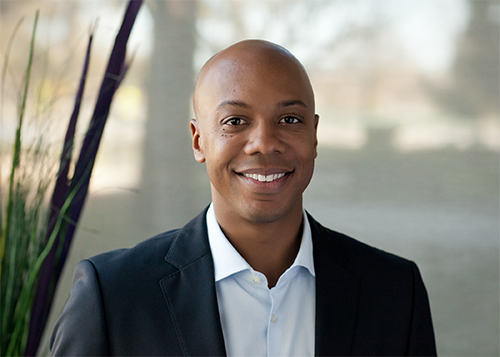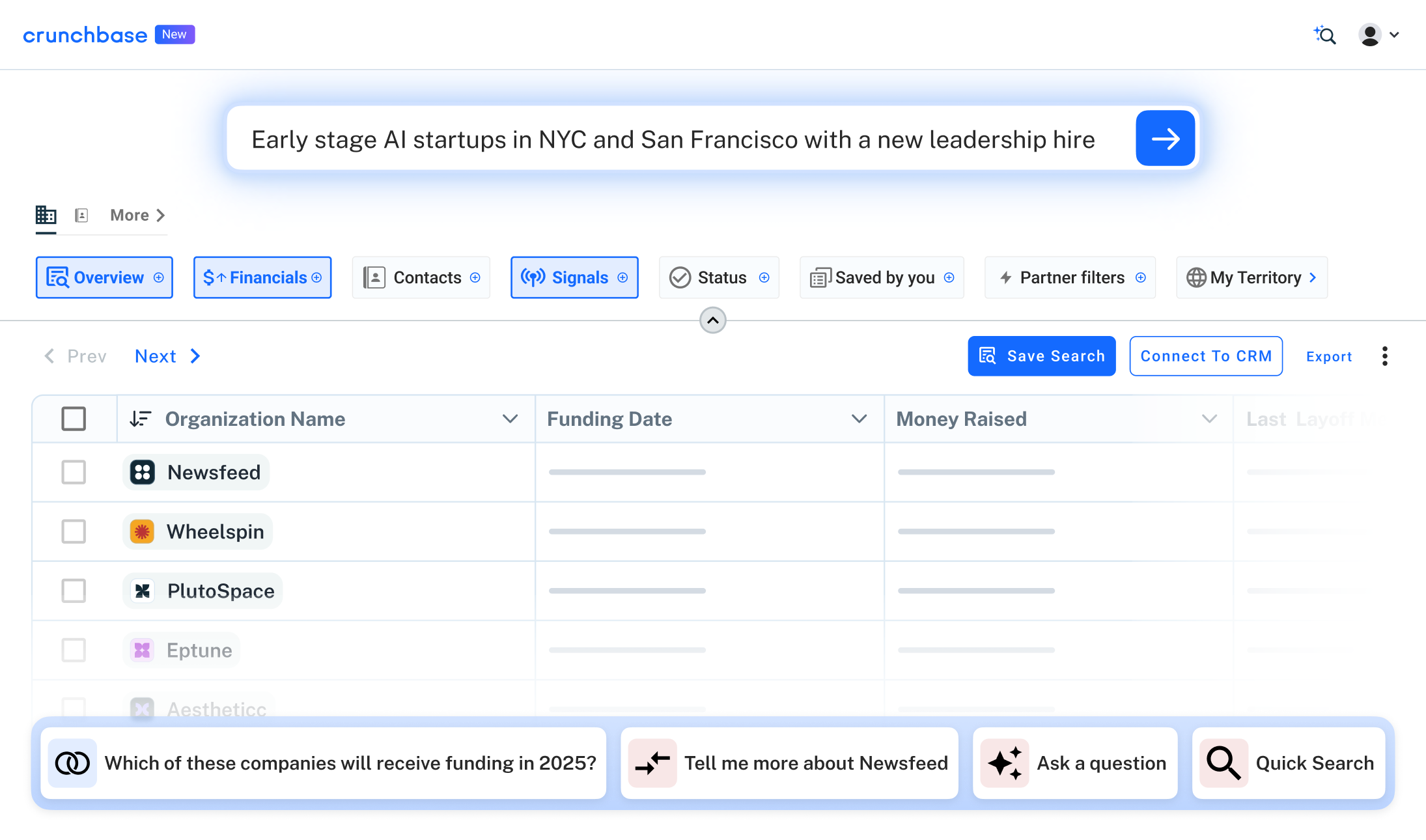Crunchbase Spotlight is a series that celebrates diversity and inclusion in entrepreneurship, venture capital, and tech by profiling people of color, women, and individuals who identify as LGBTQ.
 To achieve anything in life, there’s a certain amount of risk involved.
To achieve anything in life, there’s a certain amount of risk involved.
No one knows this better than Charles Hudson, the Managing Partner of Precursor Ventures, a San Francisco-based venture capital firm that invests in early-stage technology startups.
How Hudson got into venture capital is anything but ordinary. It’s a story of turning calculated risks into a career that would go on to span more than a decade.
From Stanford to the CIA
Born and raised right outside of Detroit, Hudson moved to California in the late ’90s to attend Stanford University, where he earned his undergraduate degree.
While he wasn’t planning to stay on the West Coast after college, Hudson’s move to the San Francisco Bay Area came at a pivotal moment in history–the first consumer technology boom.
Having a front-row seat, Hudson watched the evolution of technology unfold right before his eyes.
“I remember thinking to myself: Wow, this is really exciting stuff. This is a once-in-a-lifetime chance to be part of a new industry being born,” he said.
After graduating from Stanford in 2000, he decided to stick around the Bay Area, landing an internship with a technology startup. As fate would have it, this opportunity would be the catalyst for Hudson getting his first taste of the venture capital profession.
As with any internship, it didn’t last forever. Contemplating his next move, Hudson’s boss recommended he talk to her husband who was building a team for In-Q-Tel, the strategic venture capital group for the CIA. Not one to miss out on an opportunity, Hudson took her up on the offer.
For the next 3 1/2 years, Hudson focused on investing in areas such as drones, big data, IoT, autonomous vehicles, and sensor networks at In-Q-Tel. This was his venture capital crash course and another once-in-a-lifetime opportunity he didn’t want to pass up.
After being part of the In-Q-Tel team, Hudson decided to go back to Stanford for business school.
“After 3 1/2 years as a VC, I realized I didn’t know very much about any other career path,” he said. “I felt that business school would be a chance to go back and learn about a bunch of different things.”
While getting an MBA wasn’t in his original plan, it was the move he needed to make.
Finding His Path Through Trial and Error
After business school, Hudson spent the next five years exploring various roles to determine the career path that was a fit for him. He started with product management.
In 2005, he joined IronPort Systems as a product manager. However, despite having a lot of fun and working with an incredible cast of colleagues, he realized that product management wasn’t the right fit for him.
“I just don’t think I was meant to be a product manager,” he said. “I figured that out fairly quickly.”
It wasn’t until Hudson left IronPort Systems and joined Google in 2006 that he found a role that suited his skill set–business development.
For about two years, he was a business development manager at the technology titan, seeing it grow from 5,000 to 25,000 employees. While working for a company like Google certainly has its perks, Hudson realized he needed to be part of a smaller company, so he left.
Hudson then joined Gaia Online, a small gaming company with around 40 employees, in a similar role. This experience ended up igniting his startup bug and led him to another gaming startup that would later be acquired by Zynga.
Electing to not join Zynga after the acquisition, Hudson found himself back in a very familiar position: figuring out what he wanted to do next. This time, he didn’t have to wait long for the next opportunity to present itself.
Hudson and a friend decided to start their own Android gaming company. In 2010, Bionic Panda was born.
It’s worth mentioning that right before starting Bionic Panda, a few micro venture capital funds were expanding their teams and approached Hudson about joining them. Beyond some angel investing on the side, he had not been involved in venture capital since his days with In-Q-Tel. However, he found himself spending time looking at investment deals with Jeff Clavier, the Managing Partner at Uncork Capital (formerly SoftTech VC).
But Hudson was committed to building Bionic Panda and didn’t think he could be both a full-time venture capitalist and CEO. Clavier, however, had an idea for Hudson to become a Venture Partner at Uncork Capital because he knew one of two things was going to happen:
- Bionic Panda scales and Hudson dials back his involvement with Uncork Capital, in which case the fund would invest in the gaming company.
- The startup wouldn’t take off, in which case Hudson could dial up his involvement with the fund.
Either way he looked at it, Hudson had a good deal on his hands.
So for nearly three years, Hudson and his co-founder worked on and scaled Bionic Panda to around 14 employees before selling its intellectual property to another company. And at the same time, he was involved with Uncork Capital as a Venture Partner.
The Rise of Precursor Ventures
After Bionic Panda, Hudson went full-time at Uncork Capital. Officially returning to the profession that started it all.
At the time, the venture firm was growing, raising larger and larger funds–$55 million, $85 million. While a large fund means more capital to invest, it also creates an unintended problem: it dictates the need to write bigger checks.
Many of the entrepreneurs Hudson was meeting and excited about were pre-seed. They had little to no traction and only needed $500,000 to $1 million to get started, yet they were working on big problems that he found interesting.
Unfortunately, since Hudson had to pass on the pre-seed entrepreneurs to look for companies that were further along, he didn’t know of a trusted place to send them to get the funding they needed to scale their businesses. In his mind, this presented an opportunity.
What if he created his own fund that invested in the very entrepreneurs he had to pass on at Uncork Capital?
As he explained it: “If I like the work, and everyone else has migrated away from it, maybe I should be doing the work.”
After a year of contemplating the idea, Hudson decided to take the plunge.
In 2015, leveraging everything he had learned over the years, Hudson founded Precursor Ventures with a premise that all entrepreneurs, regardless of background, benefit from having an investor help them scale and grow their company from the very beginning.
To date, the venture capital firm has invested in 200 companies over 340 founders in industries such as consumer tech, education, and fintech.
Keep Moving
Martin Luther King Jr. once said, “If you can’t fly, then run. If you can’t run, then walk. If you can’t walk, then crawl. But by all means, keep moving.”
Throughout his journey, Hudson’s knack for taking calculated risks ended up either giving him valuable experience or unlocking new opportunities–many times both.
His propensity to try new things was instrumental in guiding him to a path that matched his skill set and eagerness to make an impact by helping ambitious entrepreneurs from day one of their own journeys.
What Hudson’s story illustrates is that the old saying is true, success is never a straight line.
.svg)



.png)
.png)
